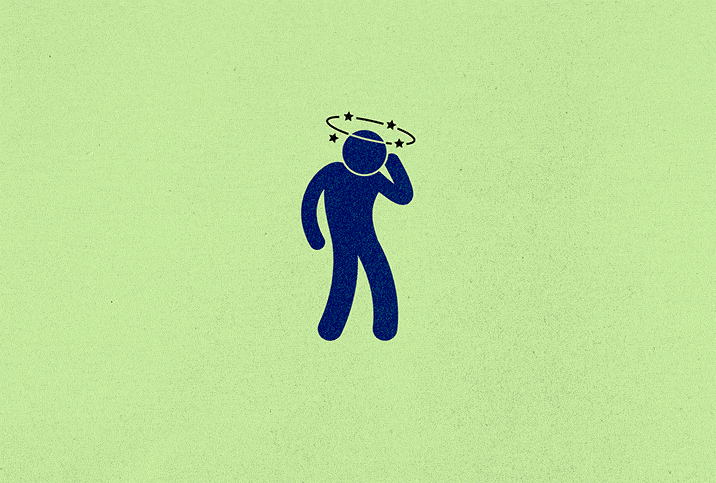If Not Hypochondria, You May Be Living With Somatic Symptom Disorder

The Diagnostic and Statistical Manual of Mental Disorders, Fifth Edition's (DSM-5) revisions to hypochondriasis's definitions and diagnostic criteria a few years ago led to two new conditions replacing hypochondriasis in the manual: somatic symptom disorder and illness anxiety disorder.
Although similar, a few fundamental differences separate the new conditions. People with illness anxiety disorder experience persistent fear of developing or having a serious medical condition despite a lack of evidence.
"Somatic symptom disorder is diagnosed when an individual has an extreme or excessive focus on physical symptoms, such as pain or fatigue, which results in emotional distress and impaired daily functioning," said Lee-Anne Meleagrou-Hitchens, D.Psych., a psychotherapist and counseling psychologist at Priory Hospital Hayes Grove in Kent, England.
The physical symptoms may or may not be linked to another diagnosed medical condition, but if the individual's reaction to the physical symptoms is considered out of proportion, somatic symptom disorder may be at play, Meleagrou-Hitchens said.
The DSM-5 requires the following symptoms to be present for six months or more for a diagnosis of somatic symptom disorder:
- Persistent thoughts about the seriousness of the symptoms.
- Severe and constant anxiety about the symptoms or your health.
- Devoting exorbitant time and energy to the symptoms.
"Essentially, somatic [symptom] disorder suggests a high level of preoccupation with either a real or undiagnosed set of symptoms, which cause significant distress and some degree of life impairment," said Alex Dimitriu, M.D., who is board-certified in psychiatry and sleep medicine, and founded Menlo Park Psychiatry & Sleep Medicine in California and BrainfoodMD.com. He said anxiety is essential to the diagnosis and could be present generally or limited to more bothersome symptoms.
Studying the causes
"Somatic symptom disorders entail the feature of somatization, that is, the expression of mental phenomena as physical—that is, somatic—symptoms," Meleagrou-Hitchens said.
While these symptoms may be associated with another diagnosed medical condition, sometimes the symptoms might be normal physical sensations that do not signify a serious illness or disease, she added.
Patients are typically unaware of their underlying mental problem and are instead consumed with a focus on their physical symptoms, which means they continue to seek reassurance as well as additional tests and treatments from physical health professionals, even after results of prior medical examinations have proved negative.
Although the exact cause of somatic symptom disorder is unclear, Meleagrou-Hitchens said the following factors may play a role:
- Genetic and biological factors, including increased sensitivity to pain.
- Familial influences, which may be genetic or environmental, or a combination of the two, for example, illness in the family, childhood trauma and/or attachment difficulties.
- The personality trait of neuroticism—typically defined as a tendency toward anxiety, depression, self-doubt and other negative feelings—which can impact how you perceive and interpret illness and bodily symptoms.
- Decreased awareness of or problems processing emotions, resulting in physical symptoms becoming the focus rather than the emotional problems or experiences.
- Learned behavior, for example, getting attention or other benefits from others by having an illness.
Signs and symptoms
Individuals with somatic symptom disorder experience significant emotional and physical distress.
"This might include specific sensations such as pain, shortness of breath, or more general symptoms such as numbness, weakness or fatigue," Meleagrou-Hitchens said.
The disorder's characteristic excessive thoughts, feelings and/or behaviors related to these symptoms can have a significant negative impact on your life, including:
- Constantly worrying about potential illness.
- Experiencing any physical symptoms in the worst way, for example, believing that your symptoms are serious or life-threatening even when there is no evidence for it.
- Feeling frustrated with medical professionals fearing that your evaluation and treatment have not been sufficient.
- Constantly checking your body for any abnormalities and repeatedly seeking reassurance from healthcare professionals.
"It can make it difficult for you to function or carry out tasks of daily life and may interfere with your ability to connect with others or with activities that bring you joy," Meleagrou-Hitchens added.
The impact on everyday life
Rather than the symptoms themselves, the way you interpret and react to them impacts your daily life the most, Meleagrou-Hitchens noted.
"Somatic symptom disorder can be quite limiting given the preoccupation and anxiety resulting from the perception of symptoms," Dimitriu said. "There's also evidence of increased alcohol and substance use in people with this condition."
Interestingly, Dimitriu stated that iatrogenic complications could arise in people with somatic symptom disorder, meaning harm resulting from repeated tests and procedures. Concerns about physical symptoms and health can become a central, all-consuming focus of life, to the point where it becomes hard to function, which could lead to disability.
"Individuals with somatic symptom disorder may become increasingly dependent on others, demanding support and reassurance and becoming angry when they feel that their needs are not being met," Meleagrou-Hitchens said. "They might also experience suicidal ideation or intent."
Treatment and strategies
Treatment might involve regular visits with a trusted medical professional who can offer support and reassurance, monitor symptoms and general health, and avoid unnecessary investigations and treatments, Meleagrou-Hitchens explained.
"Talking therapies can also help the individual to challenge and change their thinking styles and behavioral patterns and learn new ways to cope with physical sensations, manage stress effectively and improve overall functioning," she added.
Psychotropic medications might be helpful if an individual is experiencing significant depression or anxiety.
"Most medication trials should be performed slowly, as people may be particularly sensitive to side effects, suggesting an overall heightened sense of somatic awareness/sensitivity," Dimitriu said, noting that cognitive behavioral therapy (CBT) is another effective treatment for somatic symptom disorder.
Aside from the medically focused treatments, Meleagrou-Hitchens recommended learning how to reduce the disproportionate and persistent thoughts about the perceived seriousness of physical symptoms. Effective means to do so include:
- Practicing meditation/mindfulness. Individuals can accept their bodily sensations and pain-related thoughts by focusing on meditation and mindfulness and seeking reassurance rather than trying to get rid of those thoughts or, worse still, acting on them.
- Balancing negative thoughts. The uncertainty accompanying symptoms results in attention bias (where you prioritize the processing of certain types of stimuli over others) and memory bias (where your recollection of a specific memory is either impaired or enhanced by altering the content of what we remember), both of which can result in harmful and distressing thoughts. It is essential to counter them with positive, balanced thoughts.
- Distract yourself. It is important to keep busy to focus less on persistent and disproportionate thoughts. Engage in activities like reading a book or solving a puzzle to keep your mind distracted.
- Set a worry time. Tell yourself you don't need to think about the symptoms now because you have more important things to focus on. Instead, schedule a worry slot of 10 to 15 minutes for later, when you will allow yourself to think about symptoms.
- Stay healthy. Good sleep, a healthy and balanced diet, engaging in regular exercise, making time to connect with others and engaging in fulfilling activities or hobbies are vital activities that can help you overcome somatic symptom disorder.
"Lifestyle interventions to improve fitness—such as exercise, if possible, getting adequate sleep and minimizing stressors—may be particularly helpful," Dimitriu explained. "Meditation and mindfulness practice is particularly effective for pain and somatic symptom disorder. The very act of acknowledging that one's sensitivity to a particular symptom may be excessive has tremendous healing and therapeutic value."


















